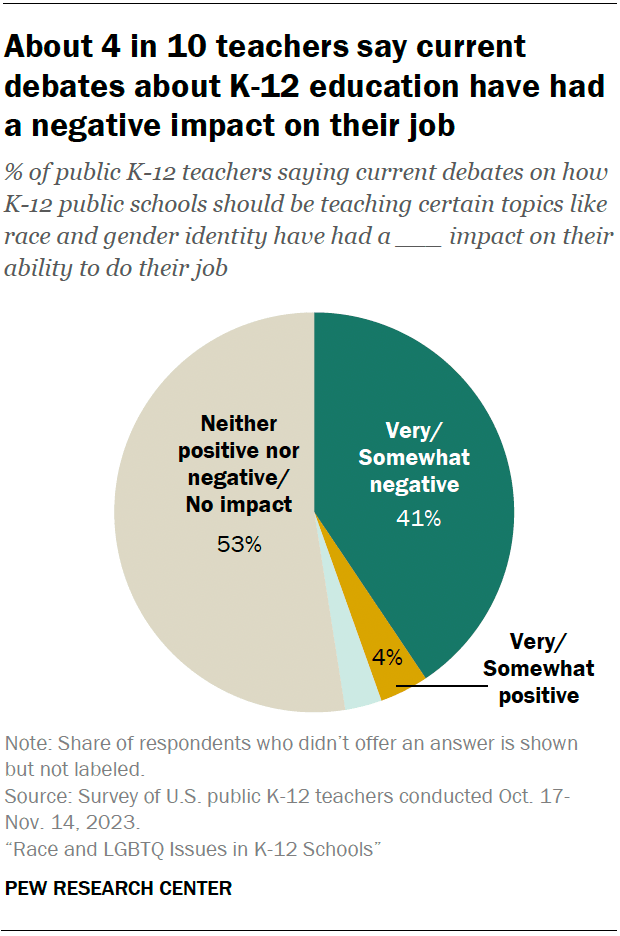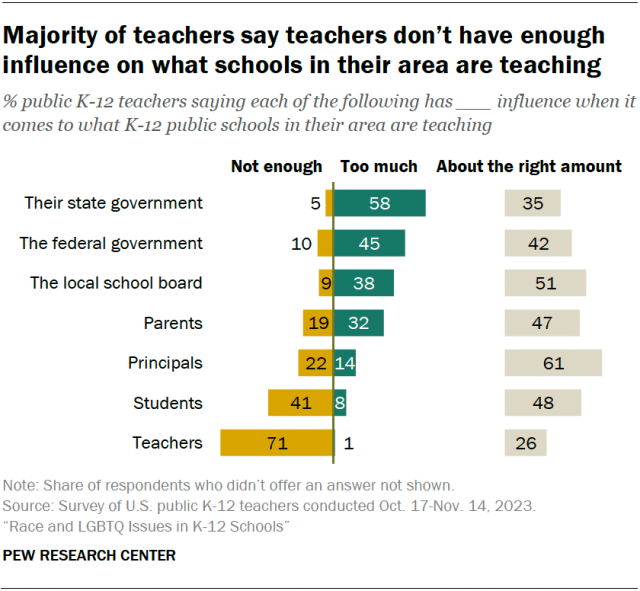We asked teachers what type of impact current debates about how public schools should be teaching about topics like race and gender identity have had on their ability to do their job.

A sizeable share of public K-12 teachers (41%) say these debates have had a negative impact on their ability to do their job.
Just 4% say these debates have a positive impact, while 53% say the impact has been neither positive nor negative or that these debates have had no impact.
Similar shares of Democratic (44%) and Republican (40%) teachers say these debates have had a negative impact. But Republican teachers are more likely than Democratic teachers to say the impact has been neither positive nor negative or that there’s been no impact (58% vs. 51%).
Secondary school teachers are more likely than elementary school teachers to say the impact has been negative (45% vs. 36%). Among secondary school teachers, those teaching English or social studies are especially likely to say this compared with those teaching other subjects (55% vs. 38%).
Influence over curriculum
We asked teachers about the amount of influence different groups have over what K-12 public schools in their areas are teaching.

Most teachers (71%) say teachers themselves don’t have enough influence.
Teachers are also more likely to say students and principals don’t have enough influence than to say these groups have too much influence. Still, 61% say principals have about the right amount of influence, and about half say the same about students.
In turn, a majority of teachers (58%) say their state government has too much influence over what K-12 public schools in their area are teaching.
More also say the following groups have too much influence than say they don’t have enough influence:
- The federal government (45% say too much, while 10% say not enough)
- The local school board (38% vs. 9%)
- Parents (32% vs. 19%)
When we asked parents of K-12 children a similar question in fall 2022, a far smaller share (30%) said teachers don’t have enough influence. Another 12% said they have too much and 42% said it’s about right. In the parents survey, we also offered a “not sure” option, which 15% of parents selected.
Partisan differences

As is the case among parents, teachers’ views on how much influence certain groups have on what schools are teaching vary by party.
Democratic teachers are more likely than Republican teachers to say each of the following has too much influence:
- Their local school board (41% vs. 35%)
- Parents (37% vs. 26%)
For their part, Republican teachers are more likely than Democratic teachers to say the federal government has too much influence (57% vs. 39%).
A larger share of Democratic teachers (47%) than Republican teachers (35%) say students don’t have enough influence on what schools are teaching.


